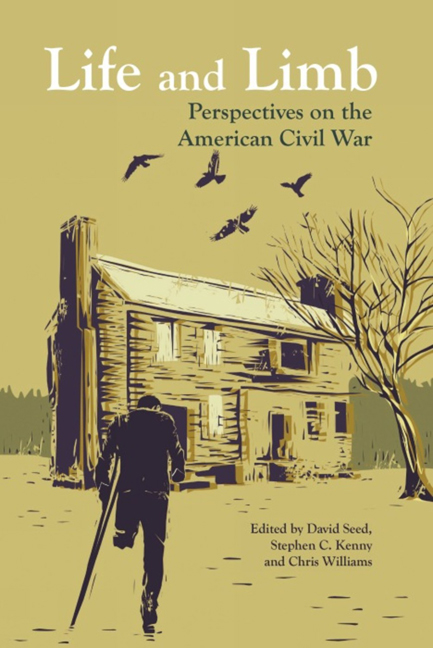Book contents
- Frontmatter
- Contents
- List of Illustrations
- Acknowledgements
- Introduction: Civil War Voices and Views
- MEDICAL AND SURGICAL MEMOIRS
- ACCOUNTS OF NURSING
- MEDICAL FACILITIES AND PATHOLOGY
- PHOTOGRAPHY
- AMPUTATIONS AND PROSTHETIC LIMBS
- IN THE FIELD OF BATTLE
- POST-WAR NARRATIVES
- ‘What I Saw of Shiloh’
- ‘The Coup de Grace’
- ‘A Resumed Identity’
- ‘Recollections of a Private’
- The Red Badge of Courage
- The Aftermath
- Contributors
- Select Bibliography
- Index
- Plates
‘What I Saw of Shiloh’
from POST-WAR NARRATIVES
- Frontmatter
- Contents
- List of Illustrations
- Acknowledgements
- Introduction: Civil War Voices and Views
- MEDICAL AND SURGICAL MEMOIRS
- ACCOUNTS OF NURSING
- MEDICAL FACILITIES AND PATHOLOGY
- PHOTOGRAPHY
- AMPUTATIONS AND PROSTHETIC LIMBS
- IN THE FIELD OF BATTLE
- POST-WAR NARRATIVES
- ‘What I Saw of Shiloh’
- ‘The Coup de Grace’
- ‘A Resumed Identity’
- ‘Recollections of a Private’
- The Red Badge of Courage
- The Aftermath
- Contributors
- Select Bibliography
- Index
- Plates
Summary
Later famous for his stories of the uncanny and for The Devil's Dictionary, originally titled The Cynic's Wordbook (1906), Ambrose Bierce (1842–1914?) enlisted in the Union army in 1861 and saw extensive action including the Battle of Shiloh in 1862. In 1864 he suffered a head wound in battle and was discharged from the army the following year. Virtually all his writing about the Civil War was retrospective. Bierce disappeared, probably in 1914, while serving in Mexico as an observer in Pancho Villa's army.
The following excerpt by Bierce was published in The Wasp (San Francisco), December 1881. The Battle of Shiloh took place in April 1862, appearing first to be a Confederate victory until the fortunes of war swung to the other side. For commentary, see Martin Buinicki and David Owens, ‘De-Anthologizing Ambrose Bierce: A New look at “What I Saw of Shiloh,”’ War, Literature and the Arts 23.i (2011), pp. 1–18. For further first-hand commentary on the Battle of Shiloh, see MSHWR Vol. 1, pp. 41–44.
In a few moments we had passed out of the singular oasis that had so marvelously escaped the desolation of battle, and now the evidences of the previous day's struggle were present in profusion. The ground was tolerably level here, the forest less dense, mostly clear of undergrowth, and occasionally opening out into small natural meadows. Here and there were small pools – mere discs of rainwater with a tinge of blood. Riven and torn with cannon-shot, the trunks of the trees protruded bunches of splinters like hands, the fingers above the wound interlacing with those below. Large branches had been lopped, and hung their green heads to the ground, or swung critically in their netting of vines, as in a hammock. Many had been cut clean off and their masses of foliage seriously impeded the progress of the troops. The bark of these trees, from the root upward to a height of ten or twenty feet, was so thickly pierced with bullets and grape that one could not have laid a hand on it without covering several punctures. None had escaped.
- Type
- Chapter
- Information
- Life and LimbPerspectives on the American Civil War, pp. 167 - 168Publisher: Liverpool University PressPrint publication year: 2015



